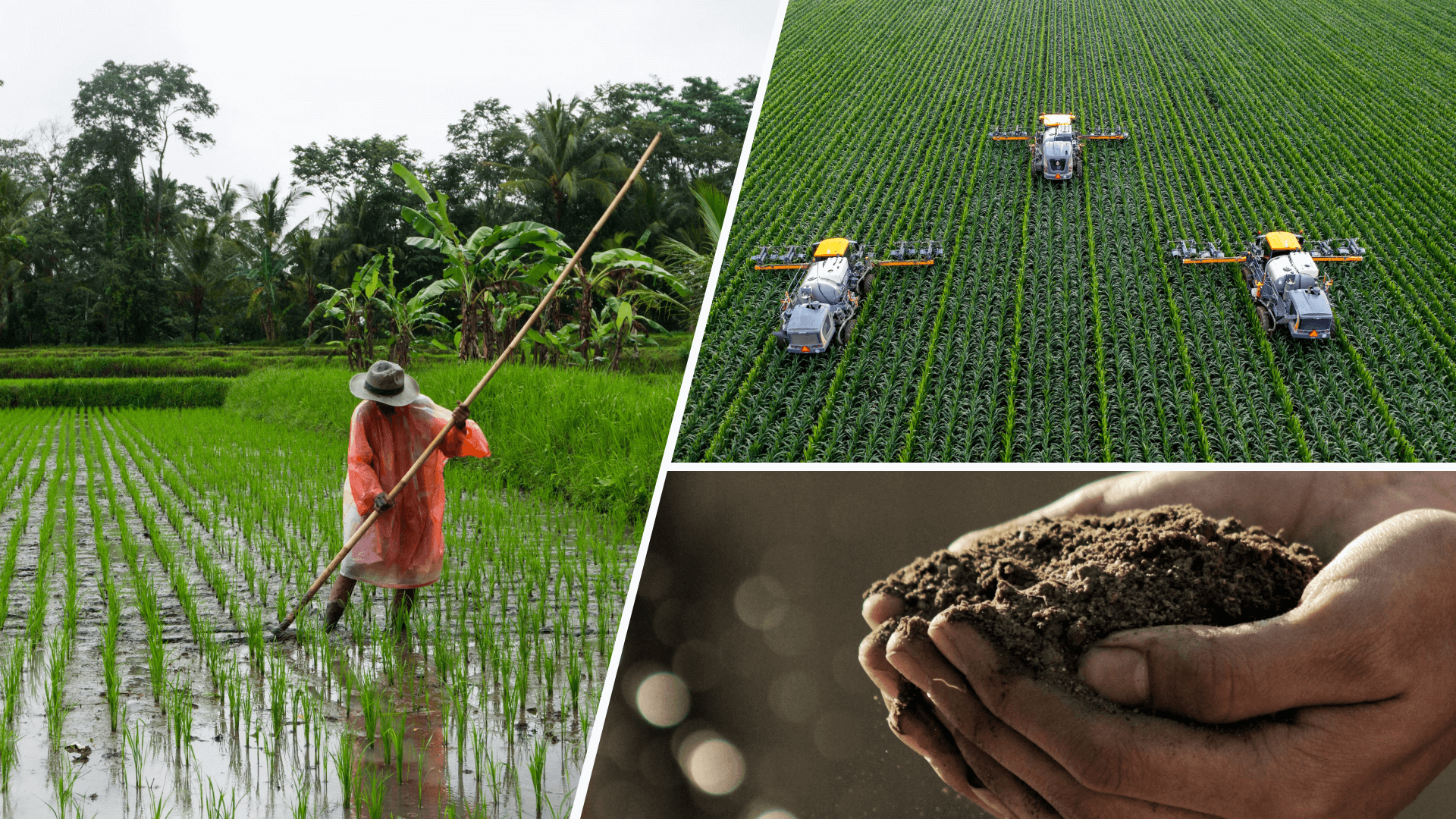
Modern Farming: Revolutionizing Agriculture with Tech
Okay, folks, let's talk about food. Where does it come from? Yeah, yeah, the grocery store, I know. But *before* the grocery store? That's where modern farming comes in. It's not your grandpappy's field anymore, folks. We're talking high-tech, data-driven agriculture – a total game-changer.
What Exactly *Is* Modern Farming?
Modern farming, at its core, is about using technology and innovative techniques to boost efficiency and sustainability in food production. Think of it as a marriage between traditional farming practices and the latest scientific advancements. Forget the back-breaking labor of yesteryear; we're talking precision, automation, and a whole lot less sweat.
The Tech That's Transforming Farming
Let's get into the juicy bits: the tech! This isn't your average tractor anymore. Modern farming relies heavily on:
- Precision Agriculture: GPS-guided machinery, sensors, and data analysis help farmers target resources precisely where they're needed, minimizing waste and maximizing yields. It's like giving your farm a personal GPS tracker and nutritionist all rolled into one.
- Drones and Aerial Imaging: Drones equipped with high-resolution cameras provide farmers with real-time insights into crop health, identifying issues early on. Think of them as the eagle-eyed scouts of the farming world.
- Robotics and Automation: From automated harvesting robots to self-driving tractors, automation is streamlining operations, saving time and labor costs. These robots aren't just cool; they're incredibly efficient.
- Data Analytics and AI: Farmers now use sophisticated software to analyze massive datasets, predicting yields, optimizing irrigation, and even preventing diseases. It's like having a crystal ball for your crops.
- Vertical Farming and Hydroponics: These innovative techniques allow for food production in urban areas and controlled environments, drastically reducing land and water requirements. It's farming…but way cooler.
- Gene Editing and Biotechnology: While a bit controversial, gene editing holds the potential to develop crops that are more resilient to pests, diseases, and harsh environmental conditions. It's science playing God…but hopefully for good.
The Benefits of Modern Farming
So, why all the fuss about modern farming? Besides the cool tech, there are some seriously compelling advantages:
- Increased Yields: More food per acre means feeding a growing global population.
- Reduced Costs: Automation and precision techniques minimize waste and labor expenses.
- Enhanced Sustainability: Optimized resource use leads to less water consumption and reduced environmental impact.
- Improved Food Quality: Advanced techniques help produce healthier, higher-quality crops.
- Greater Resilience: Modern farming practices help crops withstand climate change impacts.
Challenges Faced by Modern Farming
Okay, let's be real. It's not all sunshine and rainbows. Modern farming faces some significant hurdles:
- High Initial Investment: The technology can be expensive, creating a barrier to entry for smaller farmers.
- Data Security and Privacy: The reliance on data raises concerns about security and the potential misuse of information.
- Ethical Concerns: Gene editing and other biotechnologies spark debate about ethical implications and potential unintended consequences.
- Skills Gap: Farmers need to acquire new skills to operate and maintain the sophisticated technology.
- Environmental Concerns: While aiming for sustainability, some practices might still have unforeseen environmental repercussions.
The Future of Modern Farming
The future of modern farming is bright, but also uncertain. Expect to see even more automation, AI integration, and data-driven decision-making. The focus will be on creating resilient, sustainable, and efficient food systems capable of feeding a growing global population while mitigating climate change. It's a wild ride, and we're all along for the journey.
Modern Farming: A Summary
Modern farming is a revolution in food production. It's not just about bigger yields; it's about creating a more sustainable, resilient, and efficient food system. While challenges remain, the potential benefits are immense, and the ongoing innovations promise a future where technology and agriculture work hand-in-hand to feed the world.
Frequently Asked Questions
Q: Is modern farming environmentally friendly?
A: Modern farming *aims* to be environmentally friendly through practices like precision agriculture, reducing water and pesticide use. However, the high energy consumption of some technologies and potential impacts of gene editing are ongoing concerns that need careful consideration.
Q: Is modern farming accessible to all farmers?
A: Unfortunately, no. The high initial investment in technology can exclude smaller farmers, creating an uneven playing field. Initiatives to provide access to technology and training are crucial for ensuring equity in the agricultural sector.
Q: What are the potential risks of modern farming?
A: Risks include potential environmental damage from increased energy consumption, data security breaches, and ethical concerns around gene editing. Thorough research, regulation, and careful implementation are key to mitigating these risks.
Q: How will modern farming impact food prices?
A: The impact is complex. Increased efficiency *could* lower prices, but the high initial investment costs might also increase them in the short term. Ultimately, it depends on a balance of factors like technology adoption, market dynamics, and government policies.
Q: What kind of skills will farmers need in the future?
A: Future farmers will need a blend of traditional farming knowledge and technical expertise. Skills in data analysis, robotics, precision agriculture technologies, and sustainable practices will be increasingly important.